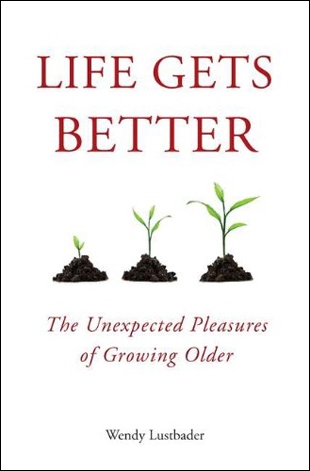Wendy Lustbader is an author, social worker, and professor who works with older people, their families and caregivers. She has collected a crosscut of elder voices from interviews, therapy sessions, conversations with older friends, research articles, films, blogs, radio vignettes, and chance encounters on buses and in cafes.
The author is convinced that it is time to throw out our negative assumptions about aging and listen instead to those who have experienced a flourishing as they age. According to Lustbader, researchers who examined a telephone survey of over 340,000 Americans in 2008 found that older people, on average, are "happier and less stressed" than young people.
Exploring ourselves, realizing our assets and limitations is a lifelong project. As we get older, our true colors show at last. And we are less willing to let the opinions of others determine our days or our deeds. Life also gets "lighter" as we let go of the arbitrary divisions of status and class. The disappointments that arise out of comparisons no longer seem to be important or necessary.
"To be wealthy in relationships comes to seem the most valuable kind of fortune," observes Lustbader. Siblings draw closer together and become friends. Old friends are treasured as those who know the road-maps of our lives. And long-lived couples give us hope that love and commitment are possible for more married persons.
Talking to older people, Lustbader discovered that "spiritual needs pull at us like a rising tide. Our interest in the sacred increases as loved ones die and our attachment to the material world fades." When asked about having the experience of seeing or feeling the presence of a loved one who has died, a surprising number of people answer in the affirmative and have stories to tell about their experience. The losses we have gone through make older people more susceptible to serving the broader claims of community. Part of this process is generosity and part of it is the universal need to feel useful.
More than any other stage of life, older adults are sensitive to the importance of both giving and receiving. The harder one is accepting help from others and becoming dependent on them. Interdependence becomes a major motif in our lives and we begin to take seriously the ties which bind us together in a sacred union.
Although our bodies may show the strain and pressures of a long life, mental resilience is a character trait that can be a guiding light for us. We have adapt ourselves to new situations, people, and conditions and that requires courage and flexibility. Some of the major challenges include: letting go, going through illness, slowing down, and not sinking into the quicksand of depression or despair.
